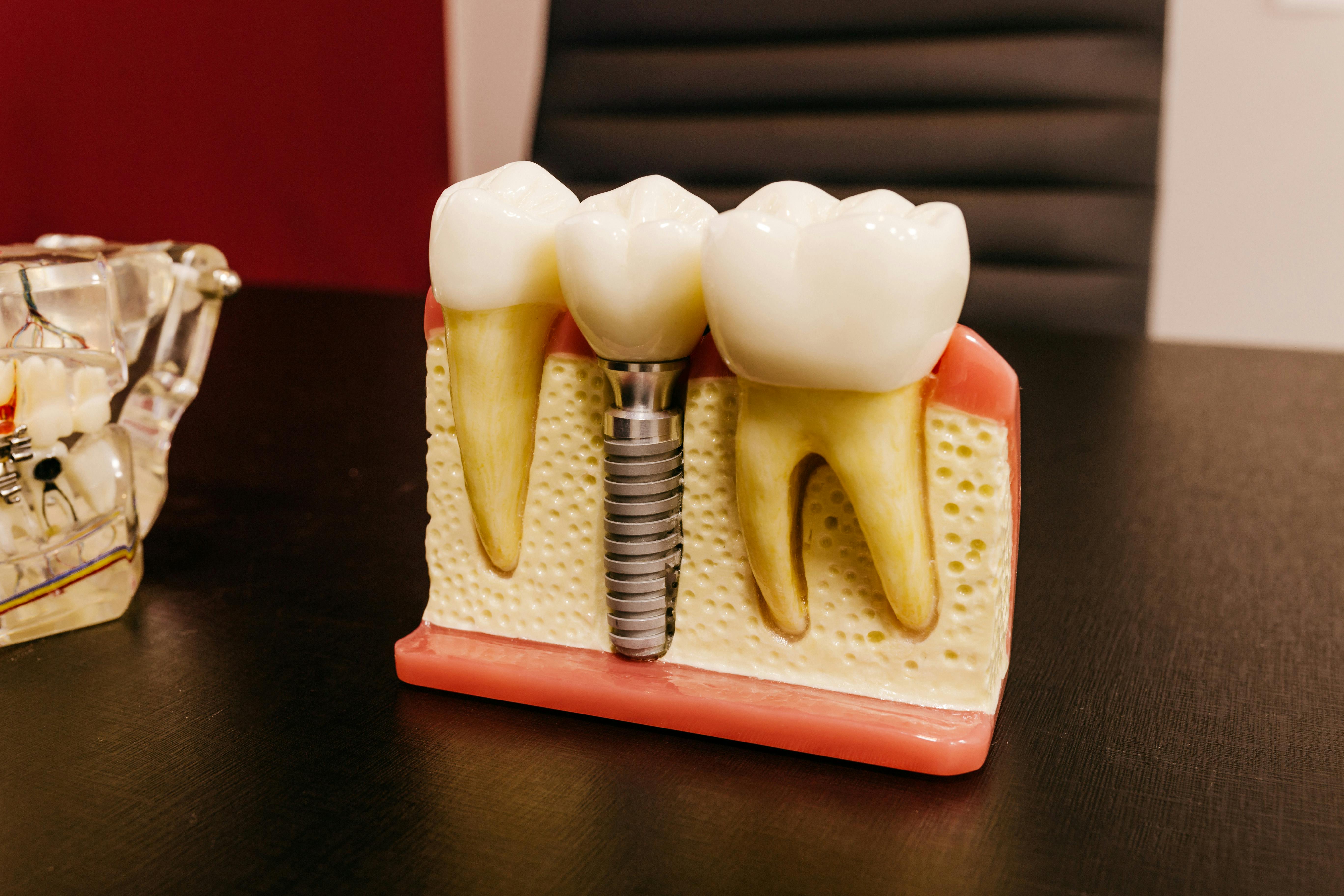Demineralization of teeth is a condition in which the enamel of the teeth begins to break down due to an acidic environment or poor dental hygiene. This can lead to tooth decay, cavities, and even tooth loss in extreme cases. Fortunately, there are several steps that can be taken to prevent and reverse demineralization of teeth. In this article, we will discuss how to fix demineralization of teeth and what steps need to be taken in order to protect your teeth from further damage.Demineralization of teeth is a process in which the minerals in the enamel of the teeth are removed. This can be caused by bacteria, acids, and sugars. The removal of these minerals weakens the enamel, which can lead to tooth decay and cavities. Demineralization is prevented by keeping teeth clean and free from plaque with regular brushing and flossing.
What Causes Demineralization of Teeth?
Demineralization of teeth occurs when the mineral content of the tooth enamel is reduced. This can be caused by a variety of factors, including inadequate oral hygiene, dry mouth, frequent snacking and drinking acidic beverages. It can also be caused by certain medications, such as some antibiotics and anti-seizure medications. Demineralization can lead to an increased risk of cavities and other dental problems.
Poor oral hygiene is one of the most common causes of demineralization. When plaque builds up on the teeth, it creates an acidic environment that can erode tooth enamel over time. This can lead to a thinning of the enamel, which weakens its protective qualities and makes it more susceptible to cavities and decay. Therefore, brushing and flossing regularly are essential for maintaining healthy teeth and preventing demineralization.
Dry mouth is another common cause of demineralization. Saliva helps to balance out the acidity in the mouth, but when saliva production is decreased due to dry mouth, this acidity builds up and erodes tooth enamel over time. Dry mouth can be caused by a variety of factors, including certain medications, dehydration and stress.
Frequent snacking is another factor that may contribute to demineralization. Eating sugary or starchy foods increases the amount of acid in your mouth, which weakens tooth enamel over time if it isn’t removed with regular brushing and flossing. Additionally, drinking acidic beverages such as soda or sports drinks can lead to demineralization if done regularly as these drinks contain high levels of acids that erode tooth enamel.
Certain medications can also cause demineralization due to their effects on saliva production or pH balance in the mouth. Antibiotics such as tetracycline can reduce saliva production while anti-seizure medications like dilantin may alter pH levels in the mouth leading to an increased risk for dental problems like cavities or erosion of tooth enamel over time.
Prevent Demineralization of Teeth
Good oral hygiene is the most important factor for preventing demineralization of teeth. Brushing twice a day and flossing regularly help to keep teeth clean and free from plaque. Plaque is a sticky film that builds up on teeth and can lead to tooth decay. If plaque is not removed, it can form tartar, which is even harder to remove and can cause further damage to the enamel.
It is also important to have regular dental checkups and cleanings to remove any plaque or tartar that may have built up on the teeth. The dentist or hygienist can also apply fluoride treatments or sealants to strengthen the enamel and reduce the risk of demineralization.
It is also important to limit sugary snacks and drinks as sugar can cause acid buildup in the mouth, which can lead to demineralization of the teeth. Consuming an acidic diet such as citrus fruits or carbonated drinks should also be avoided as these can weaken the enamel over time.
Finally, it is important to maintain a balanced diet with plenty of calcium-rich foods such as yogurt, milk, cheese, broccoli, kale, almonds, fortified cereals, and orange juice. Calcium helps build strong bones and teeth which are less likely to be affected by demineralization. Vitamin D is also necessary for calcium absorption so it is important to get enough of this nutrient too.
Brush and Floss Regularly
Brushing and flossing regularly is an essential part of a healthy oral care routine. Brushing your teeth twice a day helps remove plaque, which is the main cause of cavities and gum disease. Flossing daily helps to remove food particles that are stuck between your teeth. Regular brushing and flossing can help prevent bad breath, tooth decay, cavities, gum disease, and other dental problems. It is recommended that you brush your teeth for two minutes each time you brush, using a soft-bristled toothbrush and fluoride toothpaste. Flossing should be done using a gentle sawing motion once or twice a day.
By brushing and flossing regularly, you can keep your mouth healthy and reduce the risk of developing oral health problems. Regular brushing and flossing can also help to keep your mouth clean and free from plaque buildup which can lead to tooth decay. Additionally, brushing and flossing can help remove stain-causing food particles from between your teeth which can lead to discoloration of the enamel on your teeth over time. Keeping up with regular brushing and flossing will ensure that your smile stays bright and healthy for years to come!
Using Fluoride Toothpaste
Fluoride toothpaste is one of the most important elements in maintaining oral health. Fluoride helps to strengthen teeth, prevent cavities, and fight off bacteria that can cause gum disease. By brushing twice a day with fluoride toothpaste, you can help reduce the chances of developing tooth decay and gum disease.
Fluoride toothpastes come in many forms, so it’s important to choose one that’s right for your needs. A general-purpose toothpaste may be fine for most people, but if you have sensitive teeth or gums, it’s a good idea to look for a product specifically designed for those needs.
In addition to brushing twice a day with fluoride toothpaste, it’s also important to floss regularly and visit your dentist at least twice a year. Regular checkups are essential for catching any problems early and keeping your smile healthy.
Choosing the right fluoride toothpaste and following good oral hygiene habits can help keep your teeth and gums healthy and strong for years to come.

Limiting Sugary Foods and Drinks
Consuming too much sugar can have serious health consequences, including an increased risk of developing obesity, type 2 diabetes, and heart disease. For this reason, it is important to limit the amount of sugary foods and drinks in your diet. Fortunately, this can be done in a few simple steps.
First, read labels before purchasing food and drinks. Many products contain added sugars that may not be immediately obvious. Check the ingredients list for words like “dextrose,” “fructose,” or “corn syrup” to identify additional sources of sugar in the product.
Second, opt for low-sugar alternatives whenever possible. Choose unsweetened oatmeal over sweetened cereal or Greek yogurt over flavored yogurt that contains added sugar. Also look for natural options like fruits and vegetables instead of processed snacks that are high in sugar.
Third, watch your portion sizes when eating sugary foods and drinks. Even if you are selecting healthier options with lower amounts of sugar, they should still be consumed in moderation to avoid consuming too much sugar overall.
Finally, drink plenty of water throughout the day. Not only does water help keep you hydrated and energized, but it can also help reduce cravings for sugary snacks and drinks. If plain water is not appealing to you, try adding slices of fruits like lemons or strawberries to give it some extra flavor without adding any extra sugar or calories.
By following these simple steps, you can easily reduce your intake of sugary foods and drinks without sacrificing flavor or enjoyment. Taking control of your diet by limiting added sugars can have long-term health benefits that will leave you feeling healthier day after day!
Why to Avoid Acidic Beverages?
Acidic beverages are drinks that have a pH level of 4 or below, meaning they are acidic. Common types of acidic beverages include soft drinks, energy drinks, and coffee. While these drinks may seem harmless, they can actually be quite damaging to your health in the long-term. The acidity of these beverages can cause erosion to tooth enamel, which can lead to tooth sensitivity and cavities. They can also weaken bones by leaching calcium from them, leading to an increased risk of osteoporosis. In addition, the acidity can damage the lining of the digestive system, leading to stomach pain and an increased risk of ulcers.
It’s important to be aware of what you’re drinking and how it could affect your health. While it’s ok to have an occasional beverage that is acidic, it’s best to avoid them as much as possible in order to protect your teeth and bones from erosion. Instead opt for water, herbal teas or fresh fruit juices when possible. These options are not only healthier but also much better for your overall health in the long-term.
Chew Sugarless Gum Containing Xylitol
Chewing sugarless gum can be an effective way to protect your teeth from cavities. Many people turn to sugar-free gum that contains the natural sweetener xylitol as a way to get the benefits of chewing gum without the added sugar. Xylitol is a naturally occurring sweetener found in many fruits and vegetables that has been found to reduce the risk of cavities when chewed regularly. Studies have shown that regular chewing of xylitol-containing gum can help reduce plaque levels, increase saliva flow, and reduce the number of bacteria in the mouth.
Chewing xylitol-containing gum is also beneficial for people with dry mouth, as it can help stimulate saliva production and reduce tooth sensitivity caused by dry mouth. In addition to its benefits for reducing plaque and increasing saliva flow, xylitol also helps to neutralize acids in the mouth that can lead to tooth decay. Chewing sugarless gum containing xylitol is an easy way to help keep your teeth healthy and prevent cavities.

Conclusion
While demineralization of teeth is a common issue, it can be prevented and managed with proper oral hygiene, a balanced diet, and regular dental checkups. By brushing and flossing twice daily, using fluoride-containing products including toothpaste and mouthwash, limiting sugary and acidic foods and drinks, and consuming plenty of calcium-rich foods such as dairy products, leafy greens, nuts, and seeds, you can help to prevent or reduce demineralization. Seeing your dentist regularly for checkups can also alert you to any early signs of demineralization before it becomes a more serious issue. While there is no cure for demineralization once it has occurred, your dentist can recommend appropriate treatments such as fluoride applications or remineralizing toothpastes to help restore the mineral content of your teeth.
In conclusion, demineralization of teeth is caused by an imbalance between the remineralizing agents in our saliva and the harmful bacteria that cause tooth decay. To keep teeth strong and healthy it’s important to practice good oral hygiene habits such as brushing twice daily with fluoride-containing toothpaste and flossing regularly; limit foods high in sugar and acid; consume plenty of calcium-rich foods; and visit your dentist regularly for checkups. With the right preventive measures in place you can help protect your teeth from demineralization.
